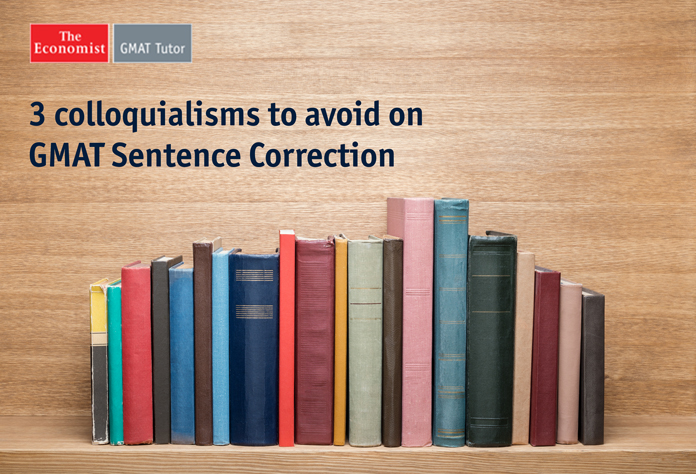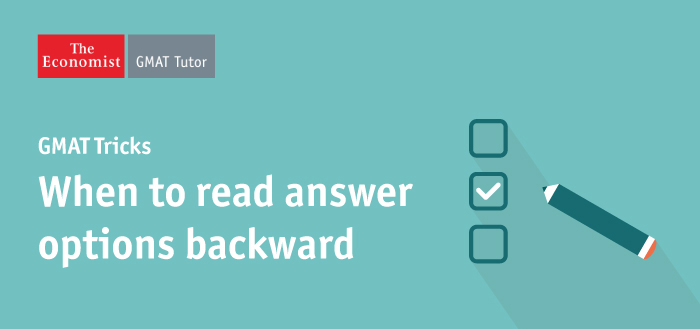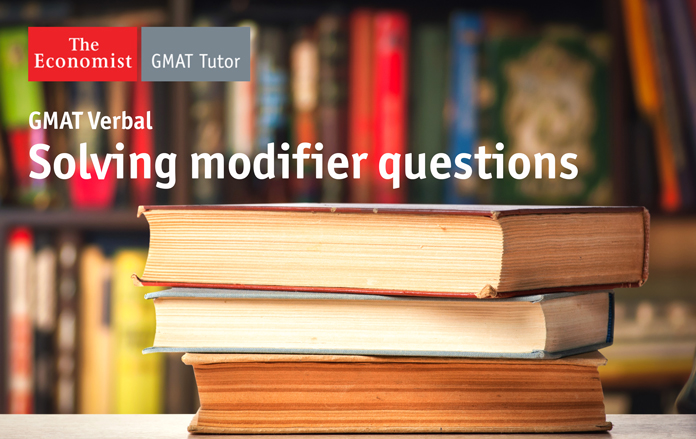Forum Home > GMAT > Quantitative > Problem Solving (PS)
Events & Promotions
| Last visit was: 12 Dec 2024, 20:53 |
It is currently 12 Dec 2024, 20:53 |
|
|

Customized
for You
Track
Your Progress
Practice
Pays
10:00 AM EST
-12:00 PM EST
07:30 AM PST
-08:30 AM PST
10:00 AM EST
-12:00 PM EST
11:00 AM IST
-01:00 PM IST
11:00 AM IST
-01:00 PM IST
08:00 AM PST
-11:59 PM PST
09:00 AM PST
-10:00 AM PST
10:00 AM PST
-11:00 AM PST
| FROM Economist GMAT Tutor Blog: Improving GMAT vocab when English is not your first language |
 I just started preparing for the GMAT. |
| FROM Economist GMAT Tutor Blog: Simplifying permutations and combinations on the GMAT |
| Although they appear less frequently than questions involving algebra or number properties, permutation and combination questions on the GMAT can be tricky for even the most savvy of test takers. As complicated as these questions can be to understand, they can also be quickly simplified. |
| FROM Economist GMAT Tutor Blog: Choosing "which" vs. "that" on GMAT Verbal |

|
| FROM Economist GMAT Tutor Blog: GMAT Verbal: which vs. that |

|
| FROM Economist GMAT Tutor Blog: Quick tips for GMAT Verbal |

|
| FROM Economist GMAT Tutor Blog: GMAT Probability, simplified. |
 Probability questions on the GMAT often confuse students. You need a simple strategy. Consider the following question: |
| FROM Economist GMAT Tutor Blog: Correct Comma Usage on the GMAT |

|
| FROM Economist GMAT Tutor Blog: Correct comma usage on the GMAT |

|
| FROM Economist GMAT Tutor Blog: 3 colloquialisms to avoid on GMAT Sentence Correction |
 You ear can be a powerful tool on the GMAT. Often times test takers, especially native English speakers, can tell what sounds right and what doesn’t. However, there are a few instances when your ear can lead you astray. This is because there are some things we say in every day English that would be considered incorrect on the GMAT. |
| FROM Economist GMAT Tutor Blog: How recent GMAT exam changes will affect you |
 The Graduate Management Admission Council recently announced three changes to the GMAT that will give test takers a little more peace of mind. The changes were made effective July 19. Here’s how you should (and should not) take advantage of them. |
| FROM Economist GMAT Tutor Blog: GMAT tricks: when to read answer options backward |
 The GMAT test makers are constantly trying to slow down your progress through the test. I always think that if I’m taking the test the way they want me to, then I must be adopting a poor strategy. Instead, I should be taking the test the way I want to. The test makers are aware of the strategies most people use, and they adapt their questions accordingly. For example, the overwhelming majority of people read their answer options from A-E. The test makers know this. When is it advantageous to read the options in reverse order? |
| FROM Economist GMAT Tutor Blog: The fast way to solve GMAT modifier questions |
 Before I started to prepare for the Sentence Correction section of the GMAT, I hadn’t heard of a modifier, let alone a dangling modifier! What is all this about? |
| FROM Economist GMAT Tutor Blog: The quick way through GMAT work problems |

|
| FROM Economist GMAT Tutor Blog: Three tips to improve your GMAT Critical Reasoning performance |
 A Critical Reasoning (CR) argument is usually structured into facts (also sometimes referred to as premises) and a conclusion. It is important that you are able to identify the parts of an argument. Isaac has given you tips on identifying the conclusion in his post “Identifying the conclusion in GMAT CR questions”. Your job is never to question the facts of the argument. You can question the gap between the facts and the conclusion. This gap can be called an assumption the writer makes in his/her argument. In other words, what did the writer have to believe to be true in order to reach the conclusion, as based on the premise(s)? There are many CR questions that require you to identify an assumption. It can get complex, but here are some tips to simplify matters. |
| FROM Economist GMAT Tutor Blog: $25,000 MBA scholarship contest is now open for autumn 2015 |

|
| FROM Economist GMAT Tutor Blog: MBA Application Essays: How to Avoid the Two Common Mistakes |
 On the surface, many applicants to elite MBA programs share similar backgrounds and traits. They are ambitious, driven, accomplished, and have strong academic records and impressive test scores. In short, they are leaders and achievers. But just because candidates share these characteristics doesn’t mean their MBA application essays have to beat the same drum. Unfortunately, loads of applicants make the mistake of writing about what they think the admissions committee wants to hear, as opposed to what really resonates for them personally. Here are two ways that this common mistake manifests in MBA application essays: |
| FROM Economist GMAT Tutor Blog: Simplifying GMAT Exponent Questions |
 Consider the following example: 28 x 46 x 320 |
| FROM Economist GMAT Tutor Blog: GMAT Reading Comprehension: improve speed by taking notes |

|
| FROM Economist GMAT Tutor Blog: Using subjunctive on the GMAT |
 Not many people have even heard of the subjunctive mood in English. However, the GMAT test makers have! Here’s a quick review to get you up to speed. 1. What is the subjunctive? Consider the following sentence: I insist that you are on time. This sounds quite good to me, as it would to most native speakers. However, it is not correct. |
| FROM Economist GMAT Tutor Blog: The Economist's Virtual MBA Fair is back |
| The autumnal installment of our popular Virtual MBA Fair is just around the corner. Have you registered yet? Here are just three of the many reasons you don't want to miss out: |